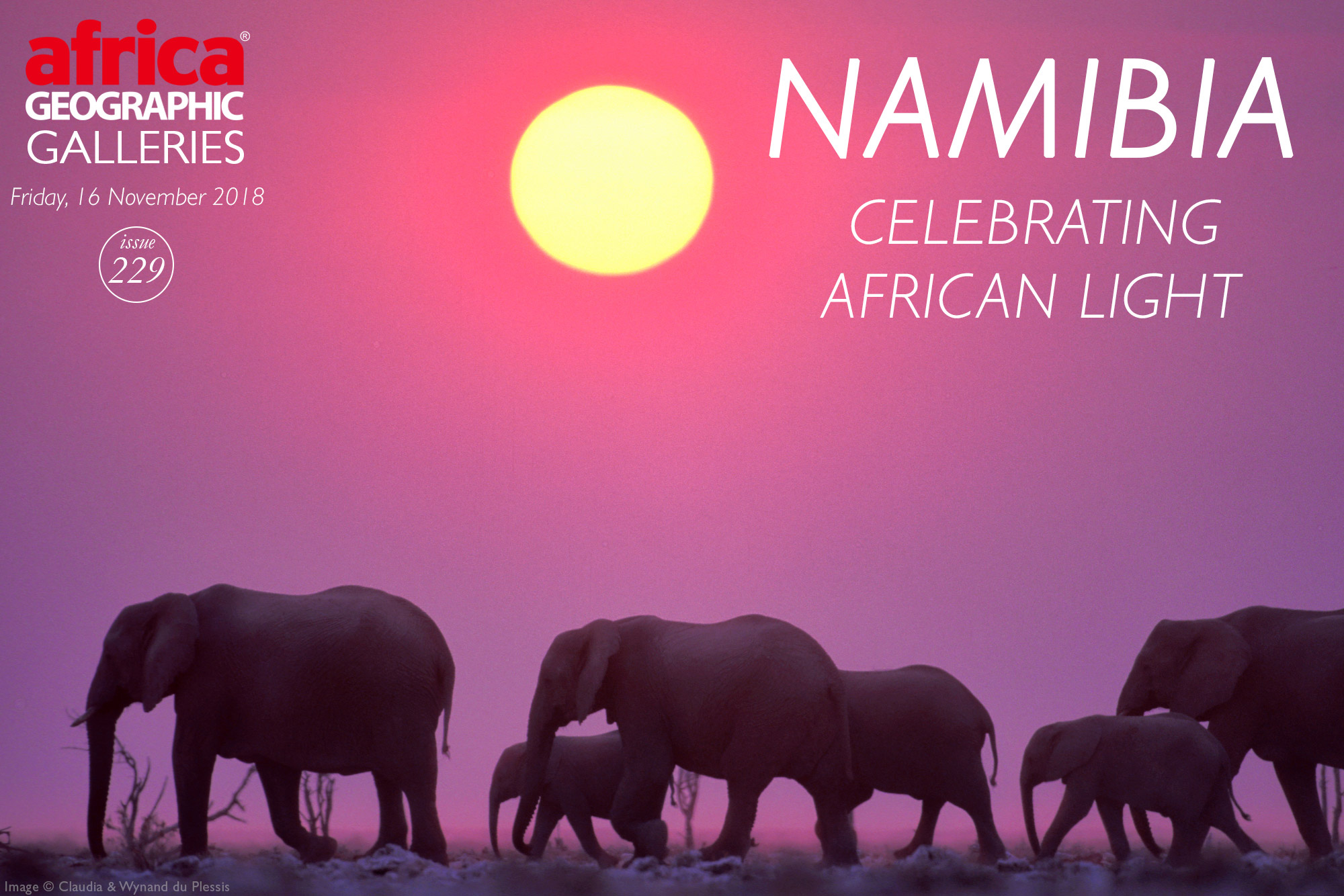
Celebrating Africa’s extraordinary light


Photography is all about light. Visiting one of Africa’s magnificent wild places is always an adventure, but experiencing it in great light can make it an out-of-this-world experience that you’ll remember for a lifetime. In the early morning and late afternoon, the low-lying sun brings out an array of colours that add a magical touch to the scenery. Sudden dust storms or seasonal cloud cover also create unique lighting conditions, transforming a wild place into a fairyland. These are the best opportunities for extraordinary wilderness experiences and for capturing stunning photographs.
We want to celebrate Africa’s extraordinary light by sharing some remarkable images captured on slide film in Namibia.
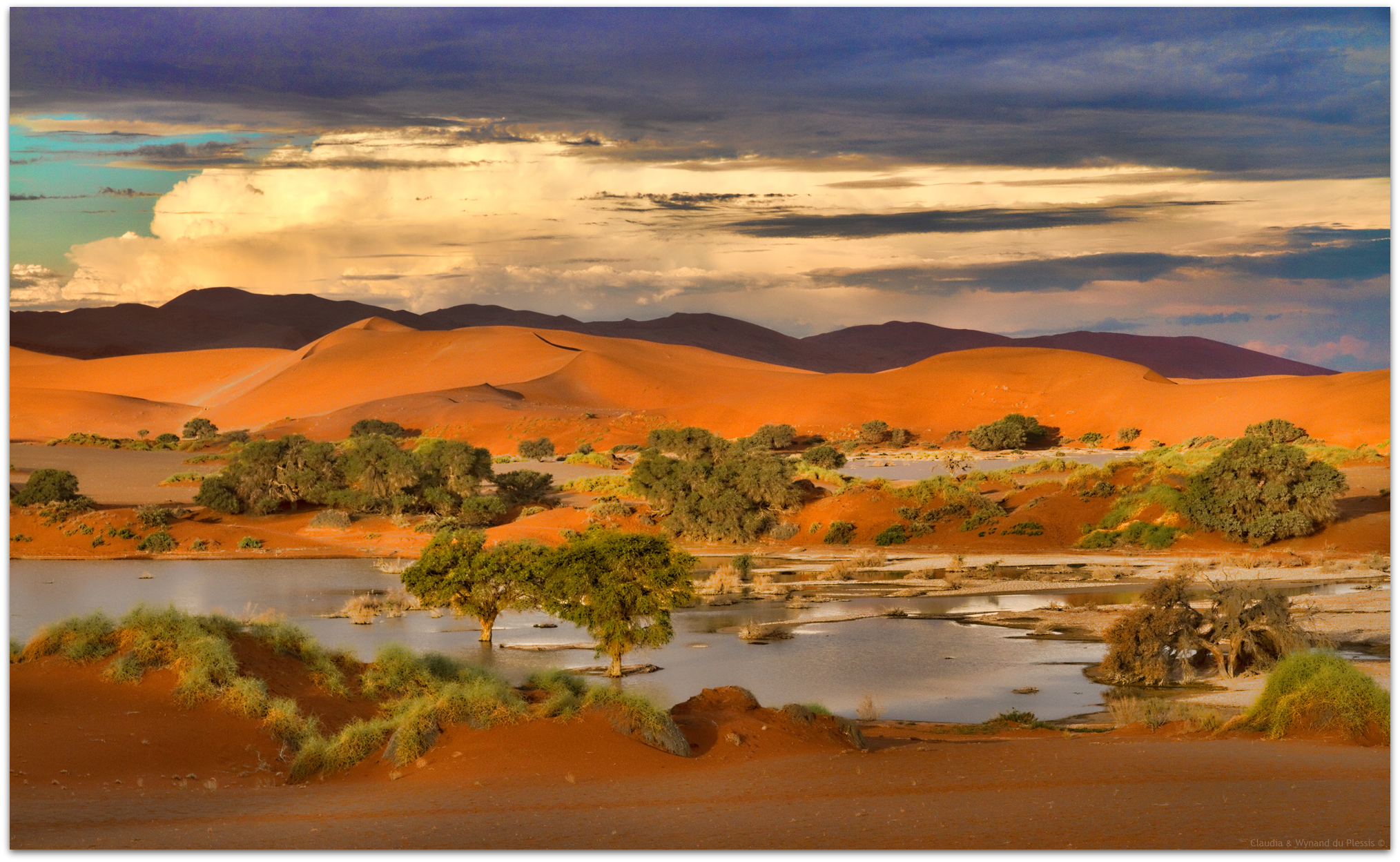
Sossusvlei in the Namib Desert is usually just a dry, white clay pan surrounded by mighty dunes. Every five to eight years, however, the pan is flooded by the Tsauchab River during times of exceptional rainfall along the escarpment a hundred kilometres further east. This photo was taken just a few minutes before sunset, after waiting two hours for the sun to reappear from behind the clouds in the west.
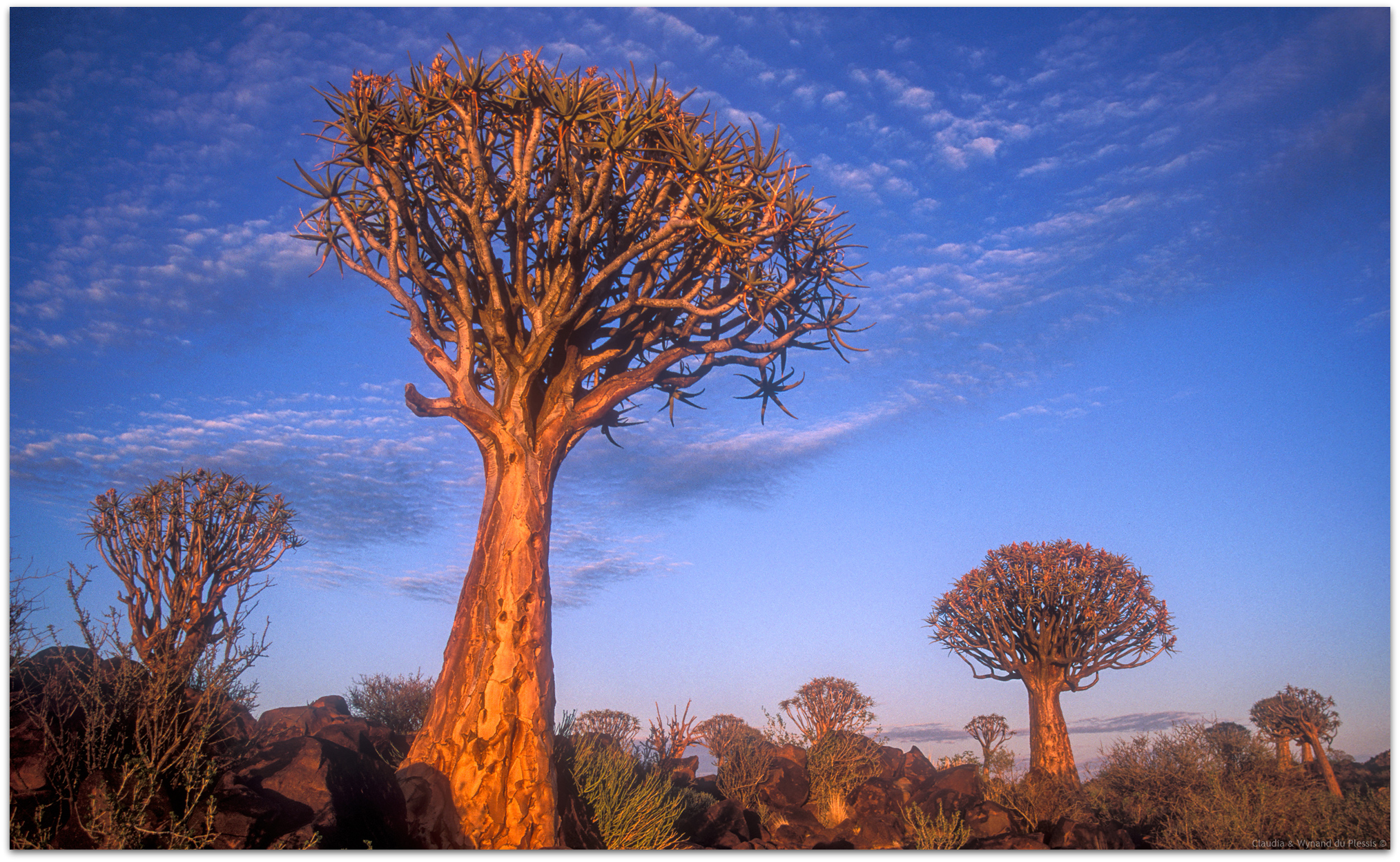
The first light at the Quiver Tree Forest in southern Namibia conjures a golden glow onto the trees. The Quiver Tree Forest is a prime example of the dramatic diurnal light changes. When visited at noon, the area looks rather bleak and harsh, but when the sun stands low in the early morning and late afternoon, the scenery transforms into a fairy landscape.
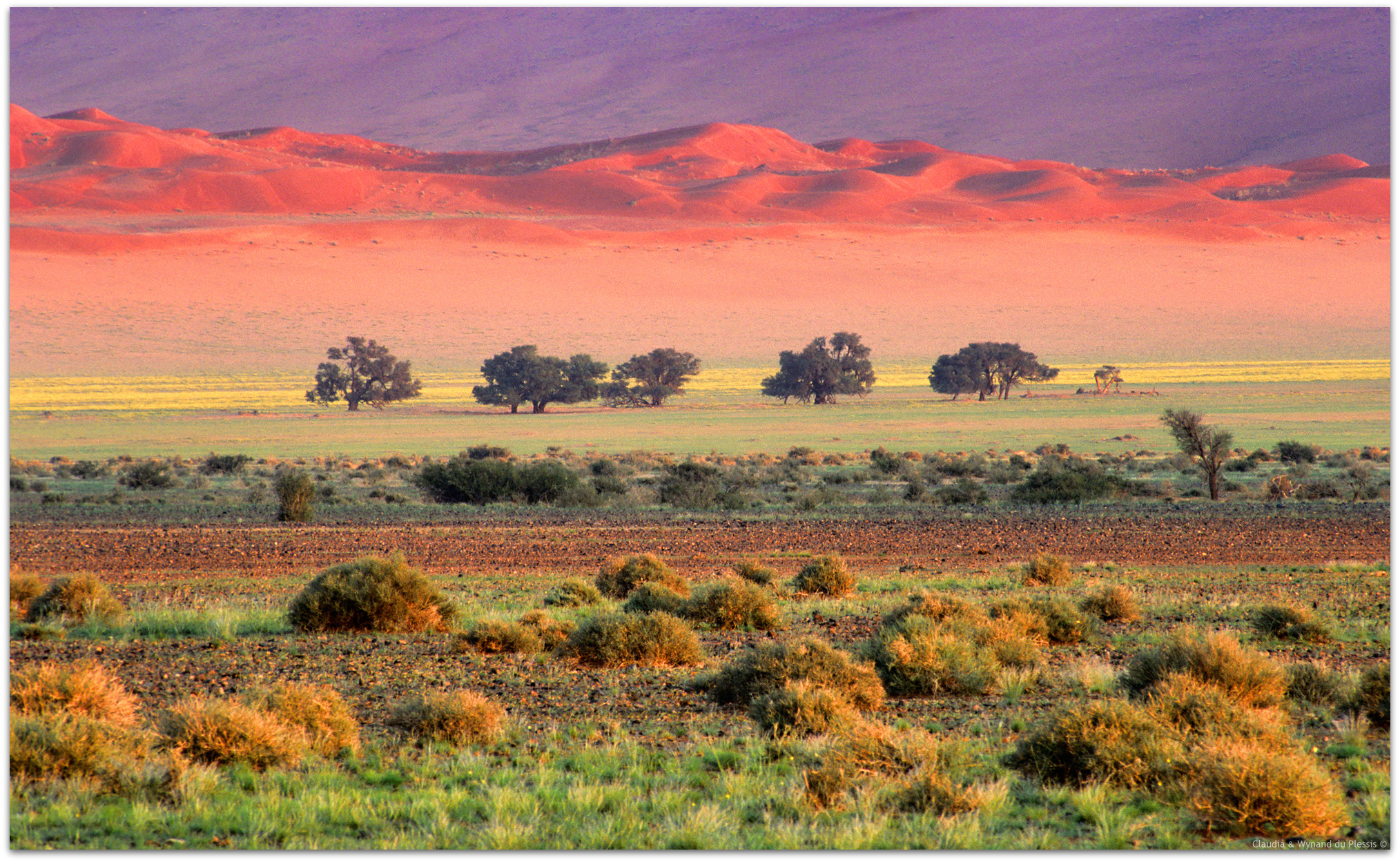
In the early morning light, the gravel plains west of Sesriem shine with warm colours. Within days of a rare rainstorm, the rather monochrome desert landscape transforms into a colourful carpet of greens and yellows from sprouting grass and flowering devil’s thorn.
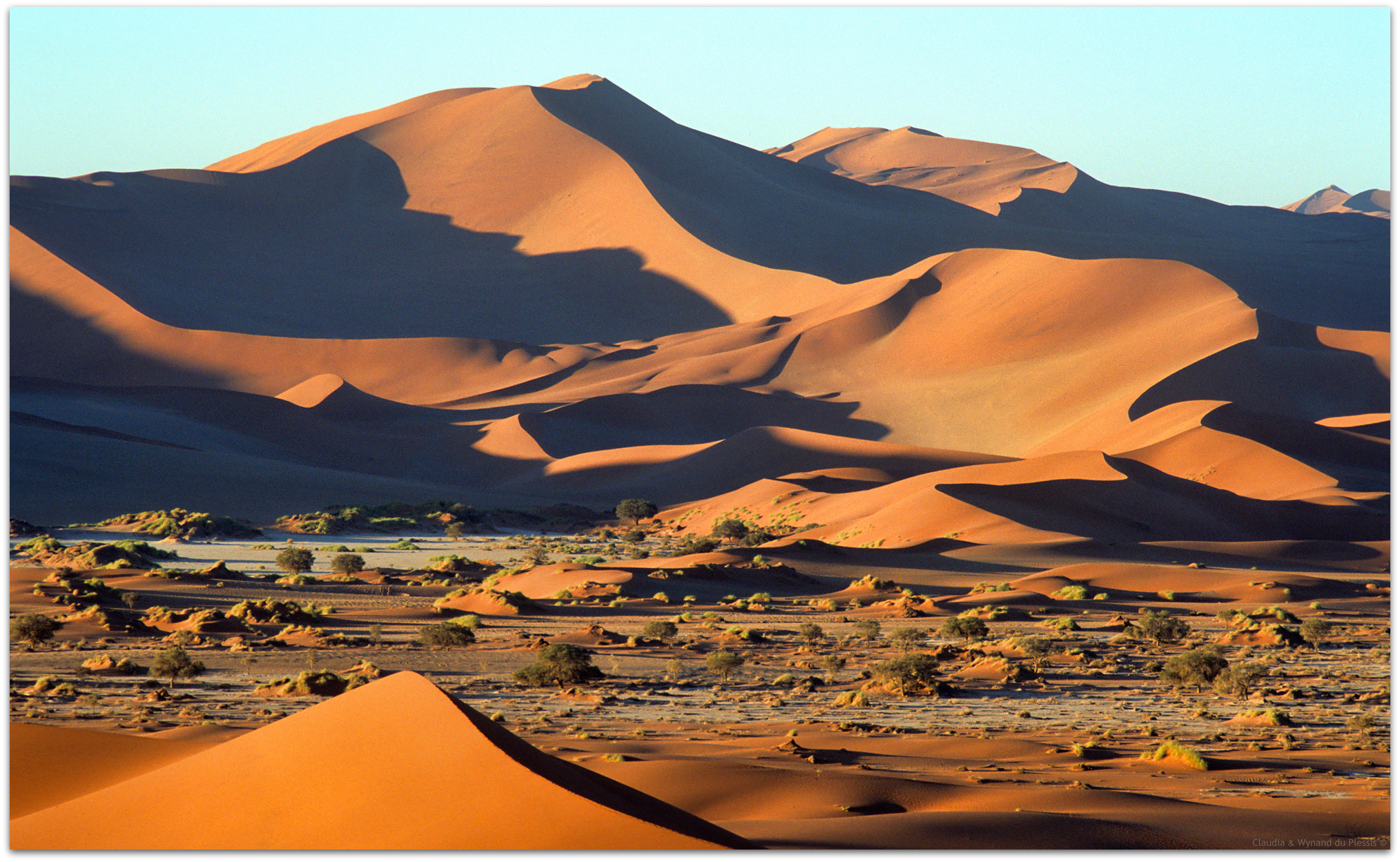
Mighty dunes surround the dry Sossusvlei. In the late afternoon, the beautiful shapes of the dunes, combined with the fascinating play of light and shade, offer endless possibilities for stunning images.
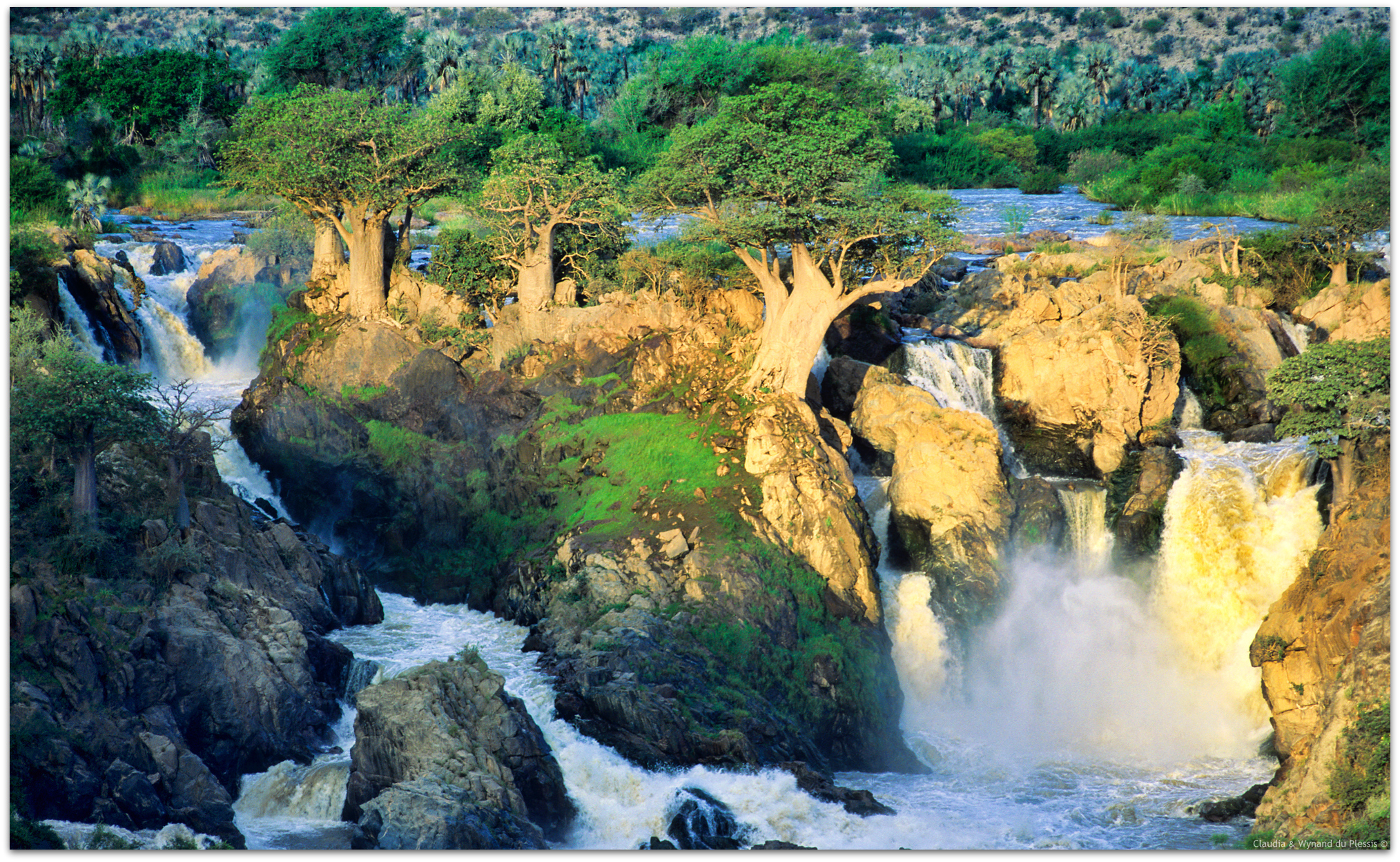
Baobab and palm trees surround the Epupa Falls along the Kunene River in north-western Namibia. Where the river suddenly drops in a series of waterfalls, it produces a deafening sound of thunder and throws white columns of spray into the air. Add picturesque baobab trees balancing on rock outcrops amidst the cascades, and you’ve got a magic water world.
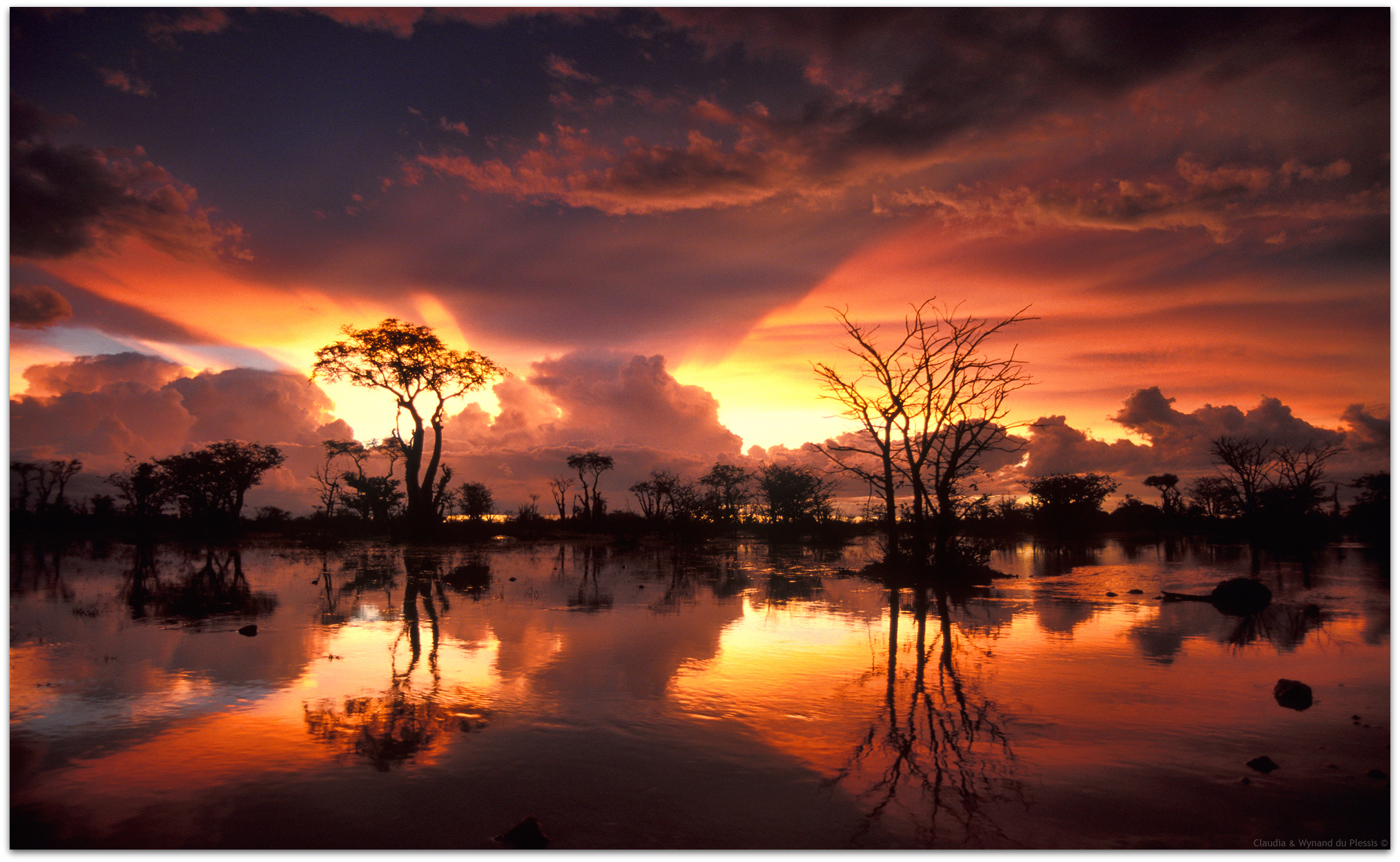
A dramatic sunset at the Fairy Tale Forest in the Etosha National Park after a heavy rainstorm has just passed. When the sunlight finally breaks through in the western sky, it pours a symphony of colours onto the flooded savanna that just an hour earlier resembled a barren desert.
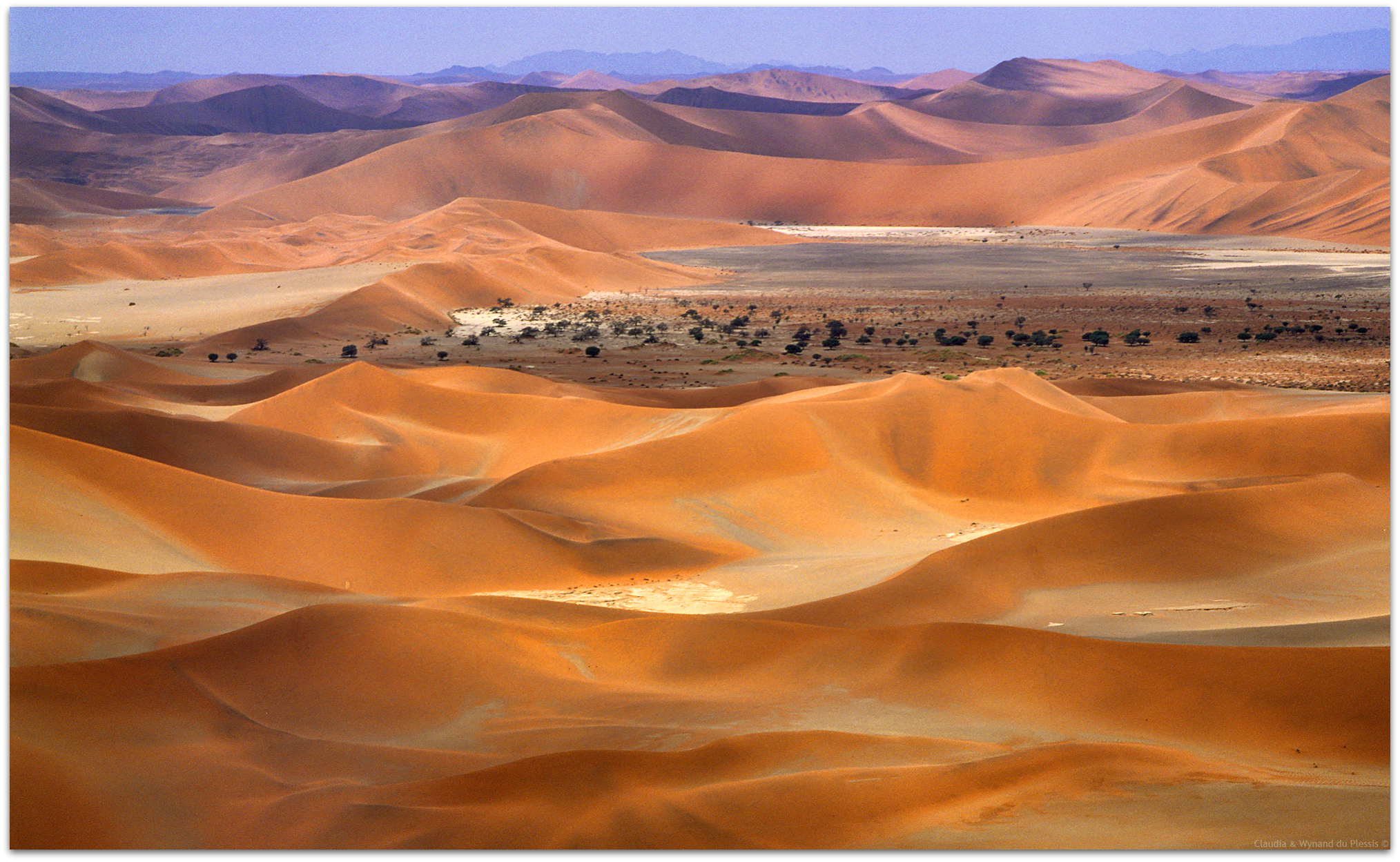
An aerial view of the landscape near Sossusvlei with soft cloud shadows offers a glimpse into the vastness of the Namib Desert. When experienced by road or on foot, the desert is grand, but it’s even more breathtakingly beautiful when seen from the air. The change in perspective truly opens up a new world.
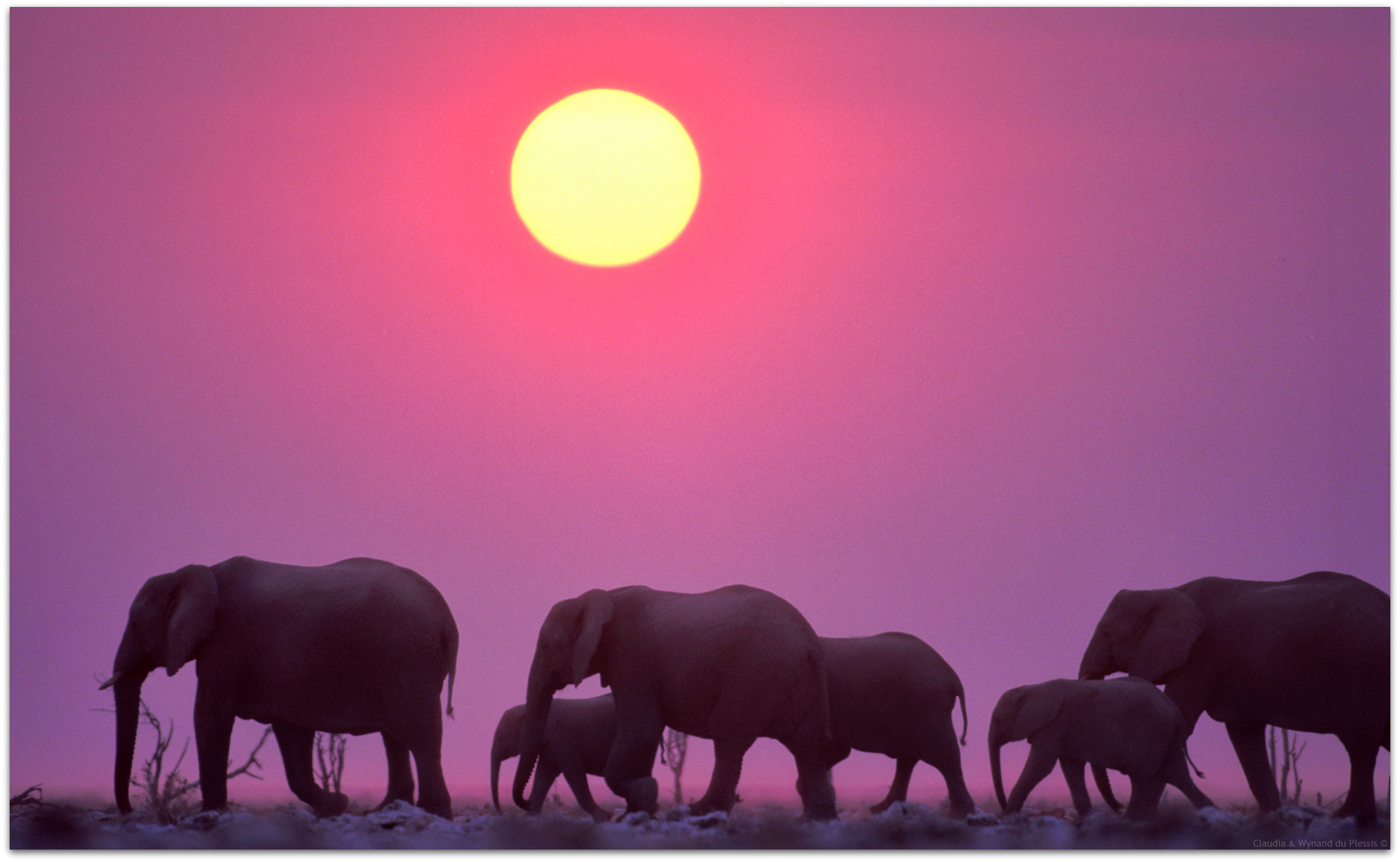
An elephant herd passes in front of a pink sunset sky in Etosha National Park. There is not the slightest sound coming from the procession of giants walking past, several tons heavy but quiet as mice. They soon fade in the dusty twilight before they are finally lost in the dark.
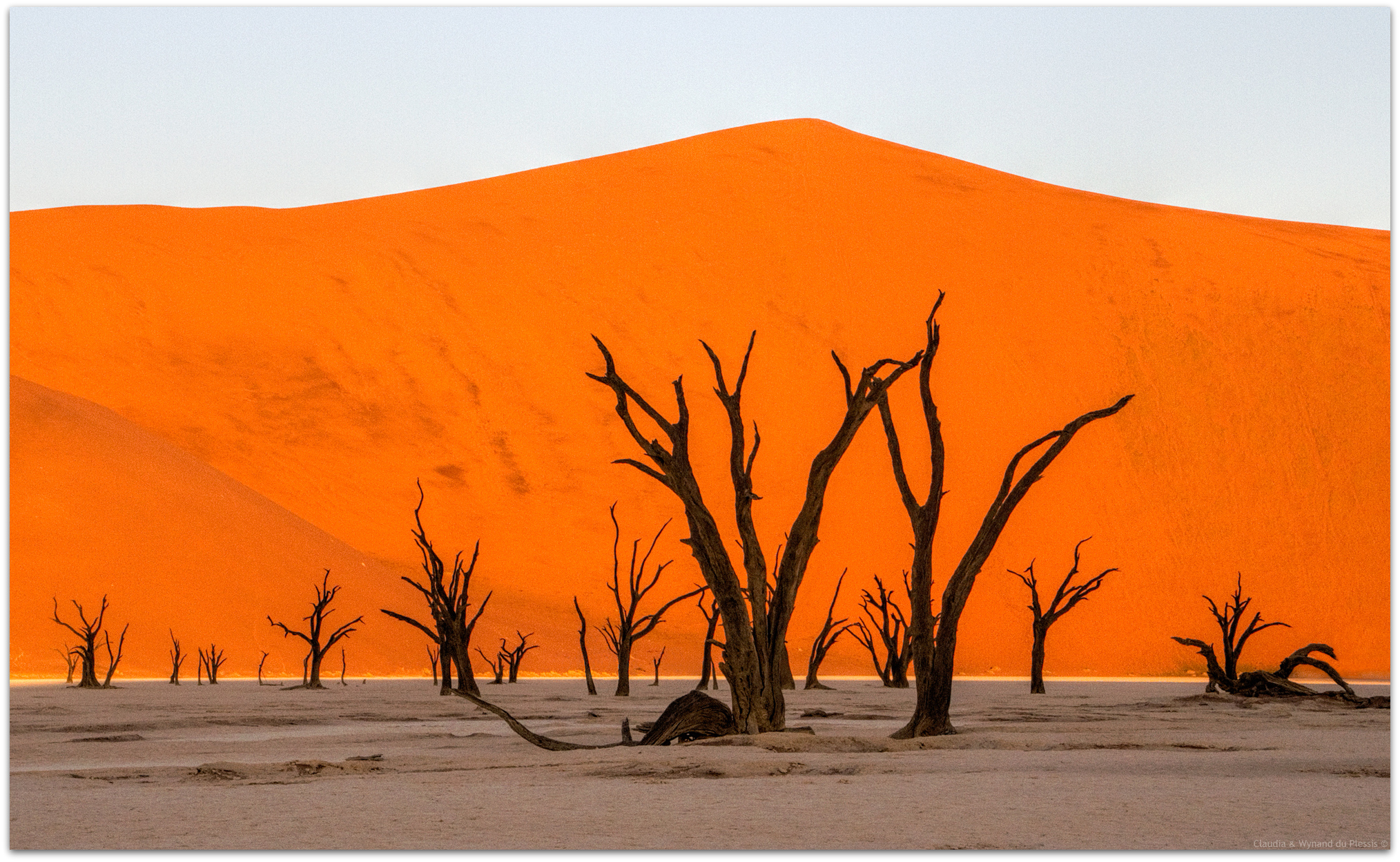
Deadvlei, with its bizarre dead Acacia trees, offers countless photographic possibilities. However, this image can only be captured within a short window at sunset, when the pan floor is already in shade and the dune behind is still illuminated by the setting sun.
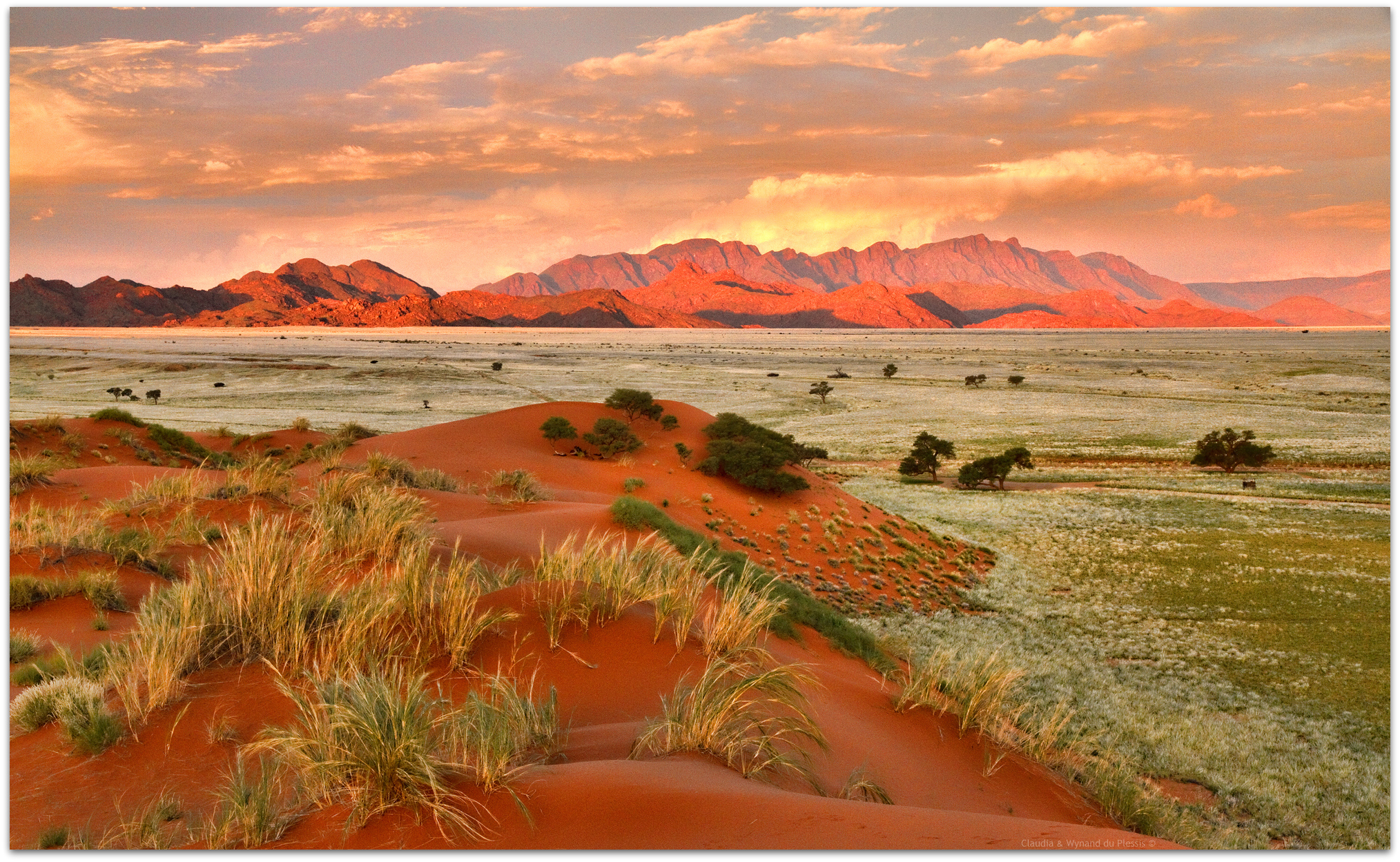
Elim Dune near Sesriem offers a magnificent view towards the Naukluft mountains at sunset. In the rainy season, a soft carpet of grass and clouds in the sky can enhance the magical atmosphere.
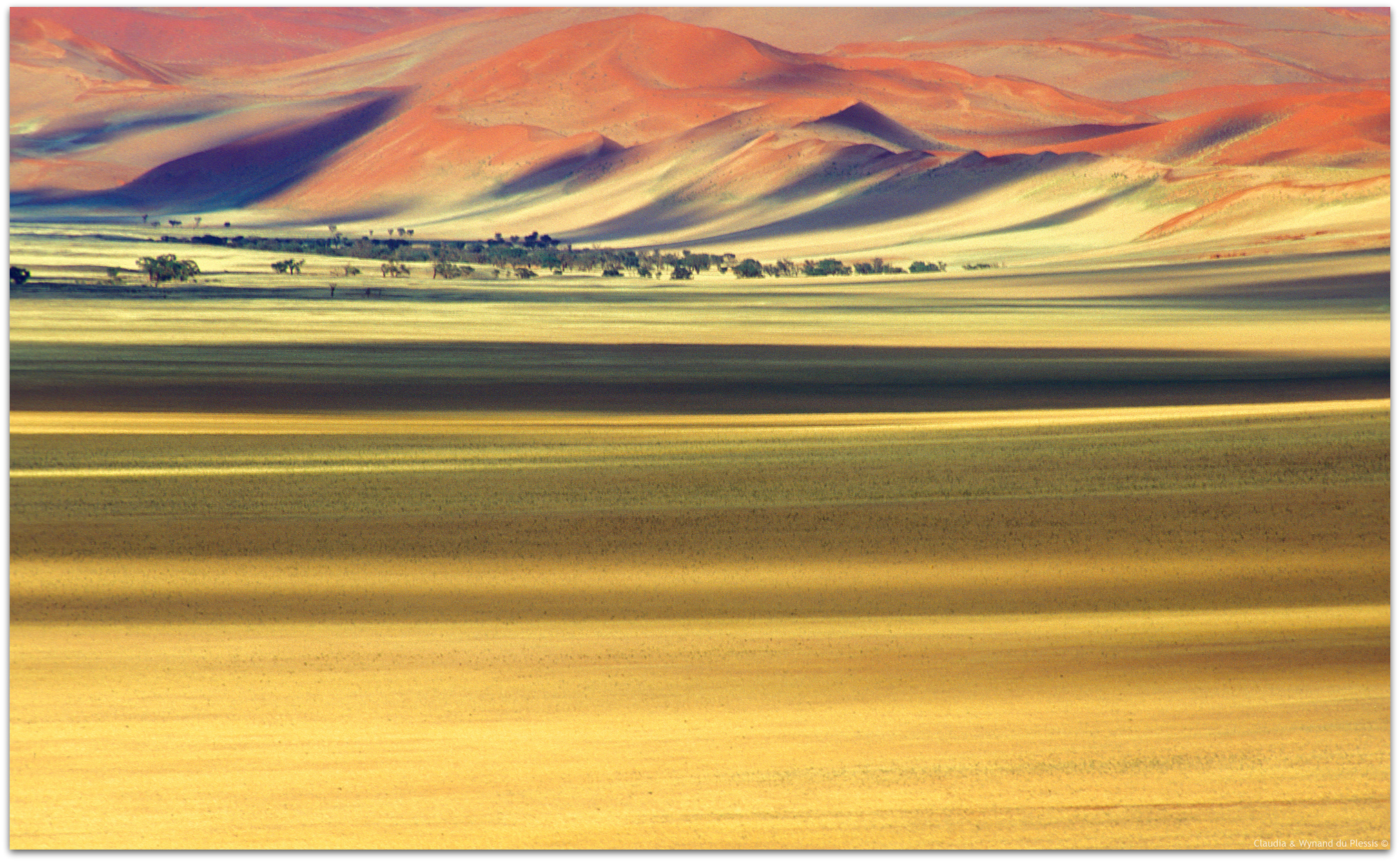
Cloud shadows over the plains and dunes of the Namib Desert near Sesriem transform the scenery into a painting. This array of pastel colours is a rare but extraordinary sight in this desert landscape.
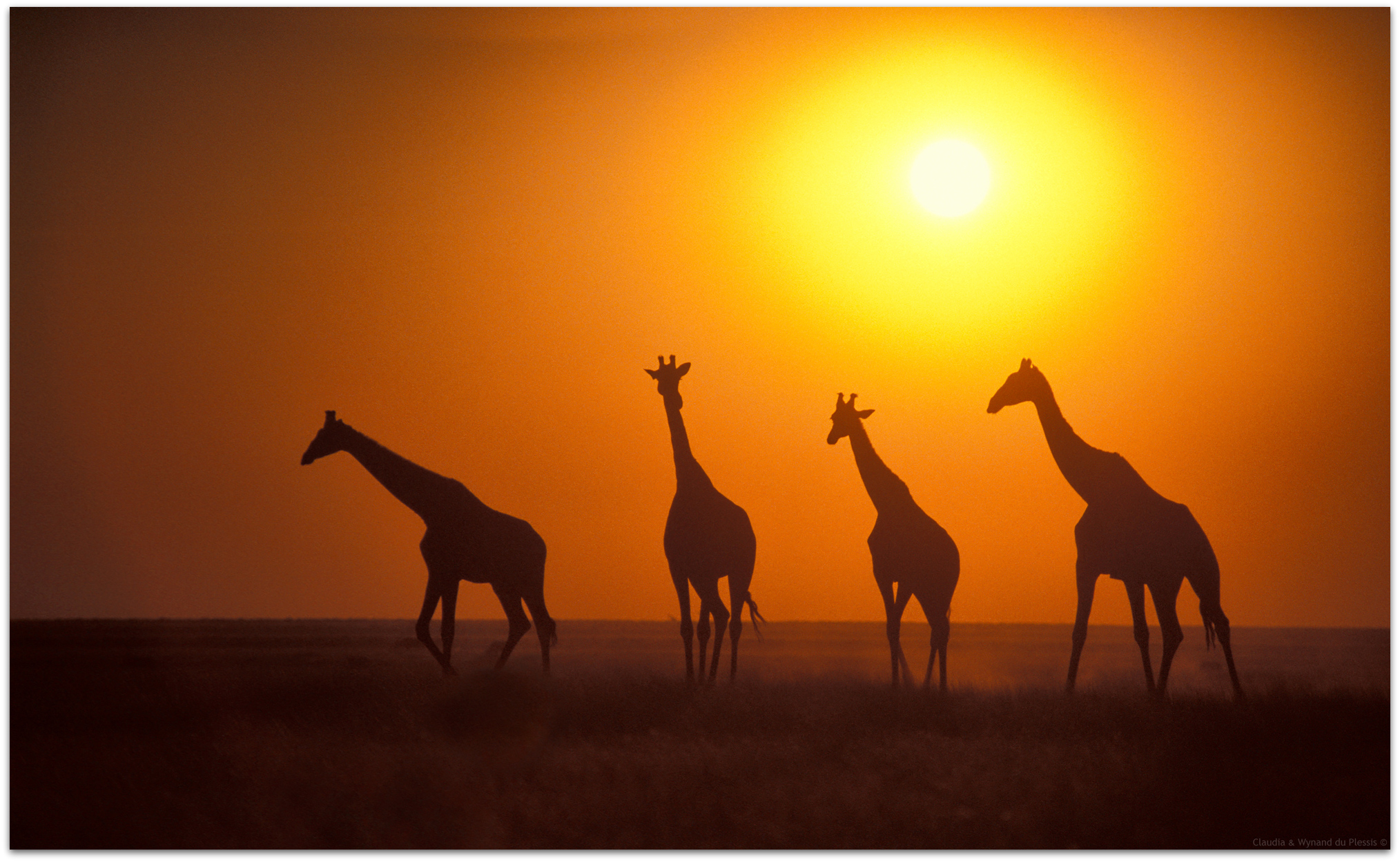
Giraffes walk across the grassy plains north of Okaukuejo in the Etosha National Park. The dry season, with its clear sky and dusty landscapes, offers great opportunities for animal silhouettes against the setting sun.
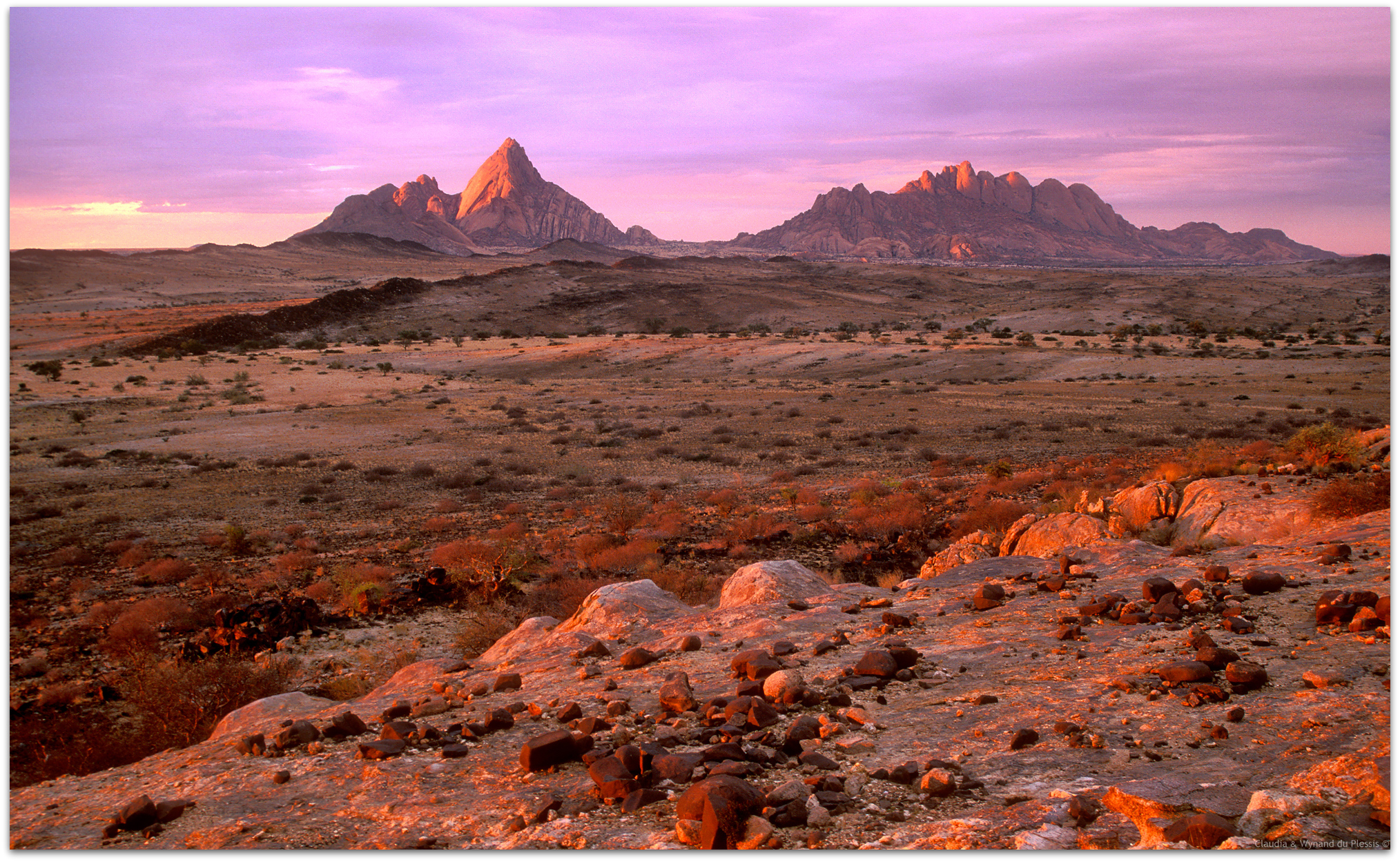
The Spitzkoppe skyline under a clouded sky glows in the last sun rays of the day. Photographed at dusk or dawn, the granite takes on a pleasing warm colour with an orange tint, offering strong photographic opportunities with its variety of shapes.
THE PHOTOGRAPHERS, CLAUDIA & WYNAND DU PLESSIS
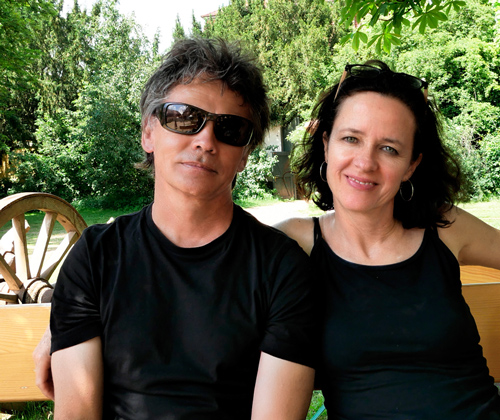
Professional nature photographers Claudia and Wynand du Plessis have lived and photographed in Namibia for more than 25 years. Their heart and photographic passion lie in the African wilderness, especially the wildlife of Etosha and the Namib Desert in Namibia. Photos featured here are from their calendar AFRICAN LIGHT 2019. Other Namibia calendars now available are WILD NAMIBIA 2019, AFRICAN WILDLIFE 2019 and ELEPHANTS 2019 (all available on Amazon in Germany, the UK, France, Italy and Spain). For more information, visit the website here.
To comment on this story: Login (or sign up) to our app here - it's a troll-free safe place 🙂.![]()




